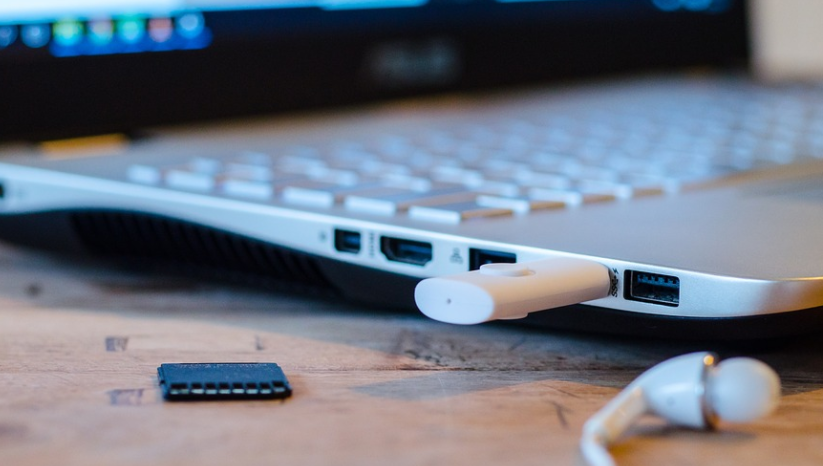Do you remember your first computer? Well, if you were born in the late 70’s or mid 80’s, you would remember it very well. A large, bulky electronic device that lets you surf the internet, create word processing documents, spreadsheets and presentations and play videos. If one word could describe it, it would be revolutionary in every sense. Today, there are entire industries that are based on the internet thanks to the computer. Accordingly, with the rise of computers, there was a market created for computer peripherals. Perhaps one of the most popular computers peripheral that took the market by storm has to be the USB storage device.
 USB drives are considered the best means of transporting data between devices. Despite the popular rise of cloud storage, USB storage devices have still maintained their mass appeal. This is because, the internet is still unreliable or is not available in many parts of the world, or perhaps data packages are more expensive in some developed or developing countries. What’s more, cloud storage has some limitations in the amount of data that could be saved to a cloud account – at most free users can expect a maximum of 15 GB storage allowance. In a nutshell, USB storage devices are simply more reliable and can allow users to save several gigabytes of data onto a single device. Additionally, there are some users who are very critical of cloud storage, especially those living in the developed world where internet is very reliable. This is because these users don’t trust organizations such as Google, Microsoft or other cloud companies looking through their personal information. Thus, these users opt out from using popular cloud services, and in turn prefer to use USB flash drives to carry their information with them.
USB drives are considered the best means of transporting data between devices. Despite the popular rise of cloud storage, USB storage devices have still maintained their mass appeal. This is because, the internet is still unreliable or is not available in many parts of the world, or perhaps data packages are more expensive in some developed or developing countries. What’s more, cloud storage has some limitations in the amount of data that could be saved to a cloud account – at most free users can expect a maximum of 15 GB storage allowance. In a nutshell, USB storage devices are simply more reliable and can allow users to save several gigabytes of data onto a single device. Additionally, there are some users who are very critical of cloud storage, especially those living in the developed world where internet is very reliable. This is because these users don’t trust organizations such as Google, Microsoft or other cloud companies looking through their personal information. Thus, these users opt out from using popular cloud services, and in turn prefer to use USB flash drives to carry their information with them.

However, there are also some downsides of using USB based storage devices such as the flash drive, SSD drives etc. That is that most people save a lot personal information on these devices such as photos, videos, resumes, tax returns, copies of bank statements etc. Consequently, loaning such devices or losing them can result in some devastating outcomes. For example, you are taking the train to work and you have your USB flash drive in your pocket. However, due to some unfortunate circumstances, your USB drive slips out of your pocket onto the floor. Thus, there is a 95 percent chance that the person who finds your USB drive will not hold back on going through your personal data. In addition, there is a 35 percent chance that someone with a criminal background will end up finding your USB drive, and use your personal information to commit crimes using your identity. Accordingly, today many USB drive manufactures have integrated their products with security features. However, most of these devices are very expensive and do not fall in the budget range of the average consumer.
Thus, recently there has been demand for third-party software that provides USB Security for various external drives. External drive security software cost the fraction of the price, and the best part is that such software can work on all types of external drives.
Significance Of USB
The USB (Universal Serial Bus) is a standard connection interface used to connect computers, peripherals, and other electronic devices. It is the most commonly used connection interface and is used to connect a wide variety of devices, including keyboards, mice, printers, scanners, external hard drives, and digital cameras. USB is also used to connect digital audio and video devices, such as speakers, headphones, and camcorders.
Major Benefits Of Using USB
1. Speed: USB is a fast connection interface, allowing for faster data transfer speeds than other connection types, such as serial and parallel ports.
2. Versatility: USB is a versatile connection interface that can be used to connect a wide variety of devices. It is also backward compatible with older connection types, such as serial and parallel ports.
What Technology Has The Flash Drive Replaced?
The flash drive has replaced traditional hard disk drives (HDDs) as the primary storage device for computers. HDDs are still used in some applications, but their capacity and speed are no match for the speed and capacity of a flash drive. Flash drives have also replaced other types of removable storage media, such as floppy disks and optical discs.
Difference Between USB And Flash Drive
USB is a type of port used to connect external devices such as keyboards, mice, and printers to a computer. Flash drives are a type of storage device that plugs into a USB port and stores data. USB is the technology that enables the connection between the device and the computer, while the flash drive is the device itself.
Advantages Of USB Drive To Store Files Instead Of Cloud Storage
The advantages of using a USB drive to store your files instead of cloud storage include:
1. Increased security – USB drives are generally more secure than cloud storage as they are not connected to the internet and are not vulnerable to hacking or other cyber-attacks.
2. Greater portability – USB drives are small and can be easily transported with you, allowing you to access your files wherever you go.
3. Cost-effectiveness – USB drives are generally cheaper than other storage device.
USB Pen Drives Popular As Secondary Storage Media
USB pen drives have become popular as secondary storage media due to their convenience, portability, and affordability. They are small and lightweight, making them easy to carry around and access your data on the go. Additionally, they are relatively inexpensive compared to other storage media, making them a cost-effective solution for backing up data. Finally, USB pen drives are generally more secure than cloud storage, as they are not connected to the internet and are not vulnerable to hacking or other cyber-attacks.
When Did USB Become Popular?
USB technology was first developed in the late 1990s and quickly became popular in the early 2000s. By the mid-2000s, USB technology had become the standard for connecting external devices to computers, and it remains so today. USB flash drives, in particular, became popular in the mid-2000s as a convenient way to store and transfer data.
Advantages And Disadvantages Of Usb Drive
Advantages: – USB drives are small, portable, and easy to use.
– They are compatible with most computers and devices.
– They are relatively inexpensive and can store large amounts of data.
– They are very reliable and have a long lifespan.
Disadvantages:
– USB drives are vulnerable to physical damage and can be easily lost or stolen.
– They are not as secure as other storage options,
What are the advantages of USB power?
Advantages Flash Drives Offer Over Other Storage Media
Flash drives offer several advantages over other types of storage media, such as:
– They are small, lightweight, and portable.
– They are easy to use and can transfer data quickly.
– They are reliable and can store large amounts of data.
– They are cost-effective and can be used with a variety of devices.
– They are more secure than other types of storage media, as they are not easily lost or stolen.
Original Purpose Of The USB Standard
The original purpose of the USB standard was to standardize the connection of computer peripherals, such as printers, keyboards, mice, and external storage devices. It was designed to replace the older serial and parallel port connections, which were becoming outdated. The USB standard also allowed for faster data transfer rates and the ability to connect multiple devices to one port.
Flash Drives Used Nowadays
Flash drives are now commonly used for storing and transferring data between computers, as well as for backing up important files. They are also used for transferring large files quickly and easily between computers, as well as for playing music and videos on the go. Flash drives are also ideal for storing personal data, such as photos and documents, which can be accessed quickly and securely.
Summary:
USB Flash drives are handy and can enable the users to store upwards of 15 gigabytes of data. However, pose a security risk if lost or stolen. Users can counteract this issue by password protecting their devices with USB security software.
